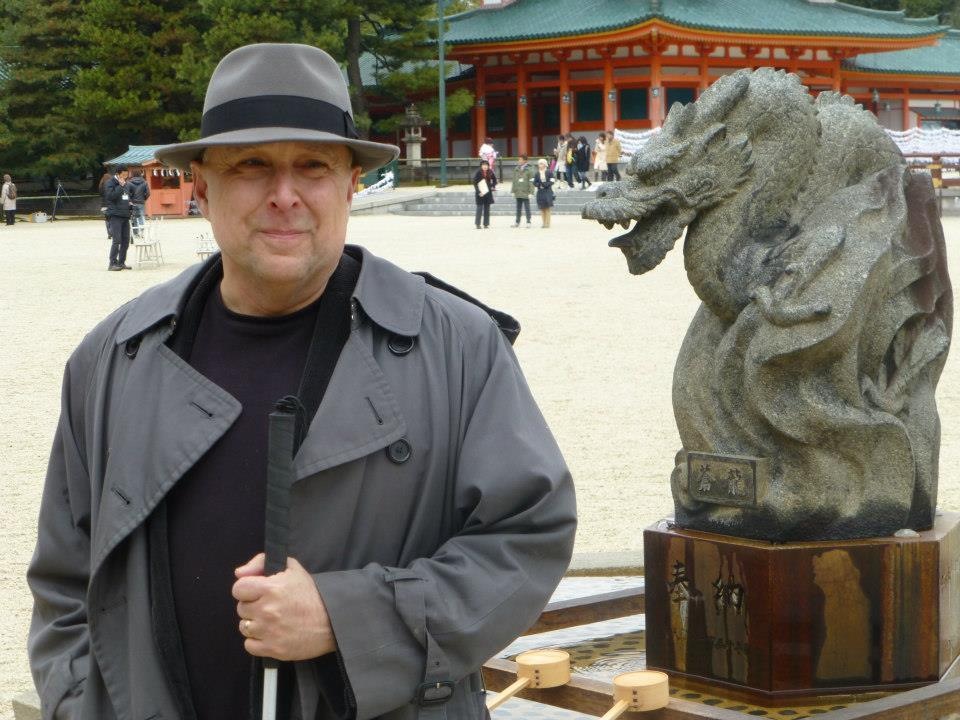I can’t tell you how to laugh or love someone. I certainly can’t tell you where poems come from or what will stir my heart or yours, say, in the next hour.
The things I can’t tell you make a considerable list. I won’t write it. You have your own even if you don’t generally acknowledge it.
I love a photo of the great opera tenor Enrico Caruso who is gently guiding Helen Keller’s cosmic finger tips across his throat as he sings for her Samson’s aria about losing his sight. Caruso was a genuine peasant and grew up in terrible poverty in Naples. By the tine of the photograph he was as famous as Theodore Roosevelt. Helen Keller was certainly just as much a public figure. And there they are, having what a later generation would recognize as a “Vulcan Mind Meld” and whenever I think of this photo I want to be Helen’s fingertips. I want to feel the luscious electrolysis of mystery-static coming through. Imagine! Touching Caruso’s throat!
I write poems in rain and in the sun. I fall down stairs. Once when I was much younger than I am now I successfully stood on my head while a young woman I loved fed me jelly beans. I fell over.
I lie down and dream of Edgar Poe’s best laugh. It was a vengeful laughter and probably more than that for it was likely mean spirited. It probably came after he met Walt Whitman who he thought a simpleton. Then there was Whitman’s laugh, which came later, at Pfaff’s saloon, and which had no Poe in it.
Where does the bitterness go? I can’t tell you.
I can’t tell you about the winds of my boyhood which kept me awake at night. I’m not that boy any longer. The winds produced stories in me. I don’t remember them now. I do recall that I always insisted to my father that he leave the window open. Even in winter I wanted it open just a crack.
I most certainly cannot tell you how in private I launder my shirt of happiness.
Can’t describe how the stars lean close when I’m mumbling “it’s alright, it’s alright” to an aging dog.
Can’t tell you how it is I can forgive the walls.
Of the ADA @ 30 I can’t tell you what it means. I stop wet faced, inner tears of joy and desperation welling.
There are substantial obstacles. There are miracles that have not yet healed.
I can’t describe poetry. I’ve the law on my side.
Whether you’re disabled or not I can’t say when cordiality or affection will come.
I wear an imaginary sapphire on my finger.
I eat the white flowers from a table and the rich people don’t notice.
Blind, crossing the street.
Like all disabled I work out things in my peculiar way.
Poetry? What is that?
I’m lighter than a child’s hand.






